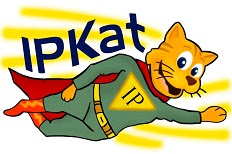Sweet Colombia: bocadillo gets GI
Few opportunities I have had to try all the beautiful food from Latin America. I mean, there are so many countries that it would be no possible for me to have tried everything from each country. So today I announce the granting of Denomination of Origin (DO ) to 'El bocadillo veleño'.
Back in 2012 the Association of producers Fedeveleños started to work towards this certification.
 The bocadillo veleño is a confectionery made of guava pulp, it is shaped in a small rectangular block, its consistency is firm and colour wise is reddish.they are wrapped in dry corn plant leaves. In Venezuela (my country) we also made similar confectionery but the Colombian one is in another league! I used to leave near the border with Colombia and this bocadillo was is my shopping list every time I crossed the border. I prefer to have it with a bit of white (fresh) cheese and sometime I put in in a blender with a glass of milk...Oh God! I was in heaven. [someone bring me some, pretty please]
The bocadillo veleño is a confectionery made of guava pulp, it is shaped in a small rectangular block, its consistency is firm and colour wise is reddish.they are wrapped in dry corn plant leaves. In Venezuela (my country) we also made similar confectionery but the Colombian one is in another league! I used to leave near the border with Colombia and this bocadillo was is my shopping list every time I crossed the border. I prefer to have it with a bit of white (fresh) cheese and sometime I put in in a blender with a glass of milk...Oh God! I was in heaven. [someone bring me some, pretty please]
The geographical link is established within the town of Vélez, Santander. This is the second DO granted in the region (the first one was Cafe Santarder) [another one in my list].
A ceremony is taking place this coming 30 June 2017 where the certificate will be granted.
More information here at the Superintendencia de Industria y Comercio (SIC).
Back in 2012 the Association of producers Fedeveleños started to work towards this certification.
The geographical link is established within the town of Vélez, Santander. This is the second DO granted in the region (the first one was Cafe Santarder) [another one in my list].
A ceremony is taking place this coming 30 June 2017 where the certificate will be granted.
More information here at the Superintendencia de Industria y Comercio (SIC).













